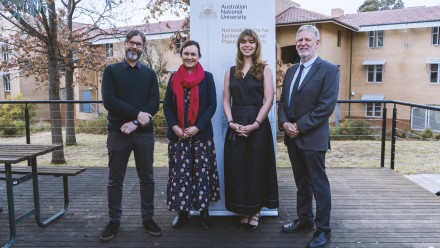Your mental health matters
Share
Finally! After two years of COVID disruptions we are finally resuming ‘normal’ university life. While this is great news, the transition from school and remote learning can be challenging.
This might be your first time at university. Or perhaps you feel like a ‘new student’ again, as you step back onto campus for the first time since starting your degree a few years ago. Either way, it’s not unexpected to experience fluctuations in mood or anxiety.
“After being away so long you might feel a sense of sadness or grief at having ‘missed out’ on the typical university experience. At the same time, you might feel excited and hopeful for the coming year. These feelings are valid and legitimate, and should be acknowledged,” says Dr Lou Farrer, Dr Lou Farrer, senior research fellow, psychologist and project lead of the Uni Virtual Clinic-Lite – a study providing university students with access to information and tools to help with their mental health (more information below).
To help cope with this change Farrer offers some tips on how you can maintain good mental health as you transition back to campus, and where to reach out if you need more help.
‘Connect-in’ to uni life
For some, university might just be about studying. But it can offer so much more than that. Establish social networks and supports through campus clubs and societies, and learn what the student association, postgraduate and research student association, and sporting clubs are offering in terms of social events and support. These can be a great way to meet and connect with others through sports, mutual interests, or your field of study.
Recognise symptoms
Learn how to recognise the symptoms of anxiety or low mood – and what situations, stressors, thoughts, or interactions might trigger these in you. Self-knowledge and awareness is a powerful tool to help you understand, effectively navigate, and seek support through tough times. The ANU Counselling Centre, Beyond Blue, and Reach Out offer helpful resources about how to recognise symptoms.
Establish good habits
Establish some good habits early in the semester – focus on nutritious food, physical activity, spending time with friends, or cultivating hobbies. These are the first things that usually disappear when stress hits and things get busy. Keep these habits as ‘non-negotiables’, even when they feel less important than deadlines and other commitments. They will help keep you functioning physically and mentally well when things are stressful – and improve your ability to cope.
Reach out for help
You can reach out for help no matter what you are experiencing. The ANU has lots of support available for students, including free counselling – you don’t have to be ‘really struggling’ to feel worthy or deserving of help. In fact, the earlier you can reach out for help, the sooner you can feel on top of things again, or better yet, prevent relatively minor issues from becoming bigger. After hours support is available through the ANU Wellbeing and Support Line, and if face-to-face support isn’t for you, there are many online supports available as well.
Uni Virtual Clinic
Some mental health pressures are unique to student life, which is why the Uni Virtual Clinic (UVC) was developed. UVC was co-designed with students, for students, and is an online place where you can access information and tools to help with your mental health.
The UVC team recently launched UVC-Lite – 12 animated videos containing tips and strategies for supporting your mental health at university on topics such as body image, procrastination, sleep issues, social anxiety, and tackling negative and anxious thinking. Each video contains information about that topic, a student story, and one strategy that you can try.
Farrer invites you to participate in a study trialling the new UVC-Lite – it’s free and only takes 5-10 minutes per week for six weeks.
“Our earlier research has shown that the UVC was successful in reducing social anxiety among students, and it helped them feel more able to successfully engage with their study,” says Farrer.
“We are excited to launch UVC-Lite, and hope these videos will be just as helpful for students.”
By Liz Drummond.











